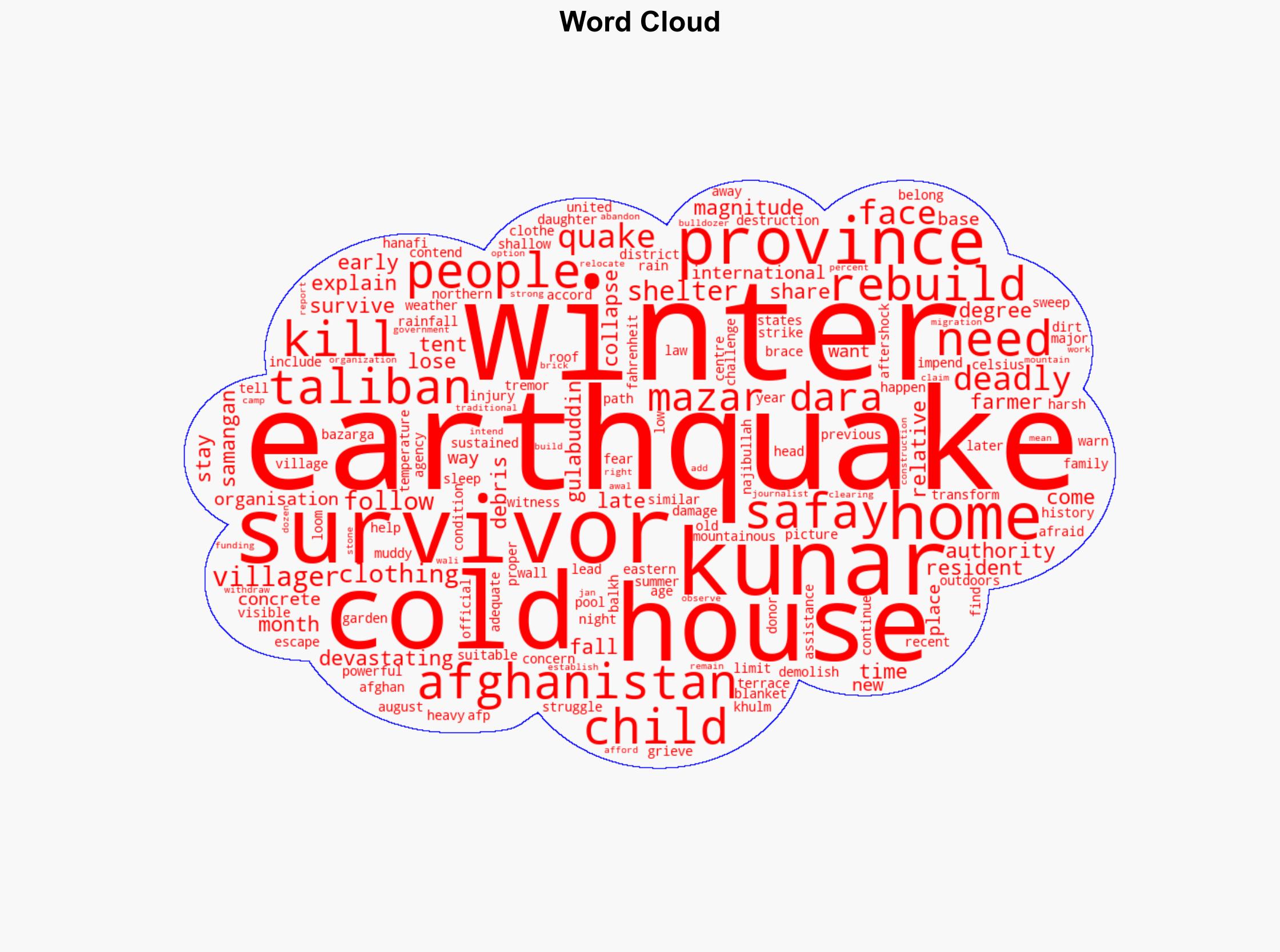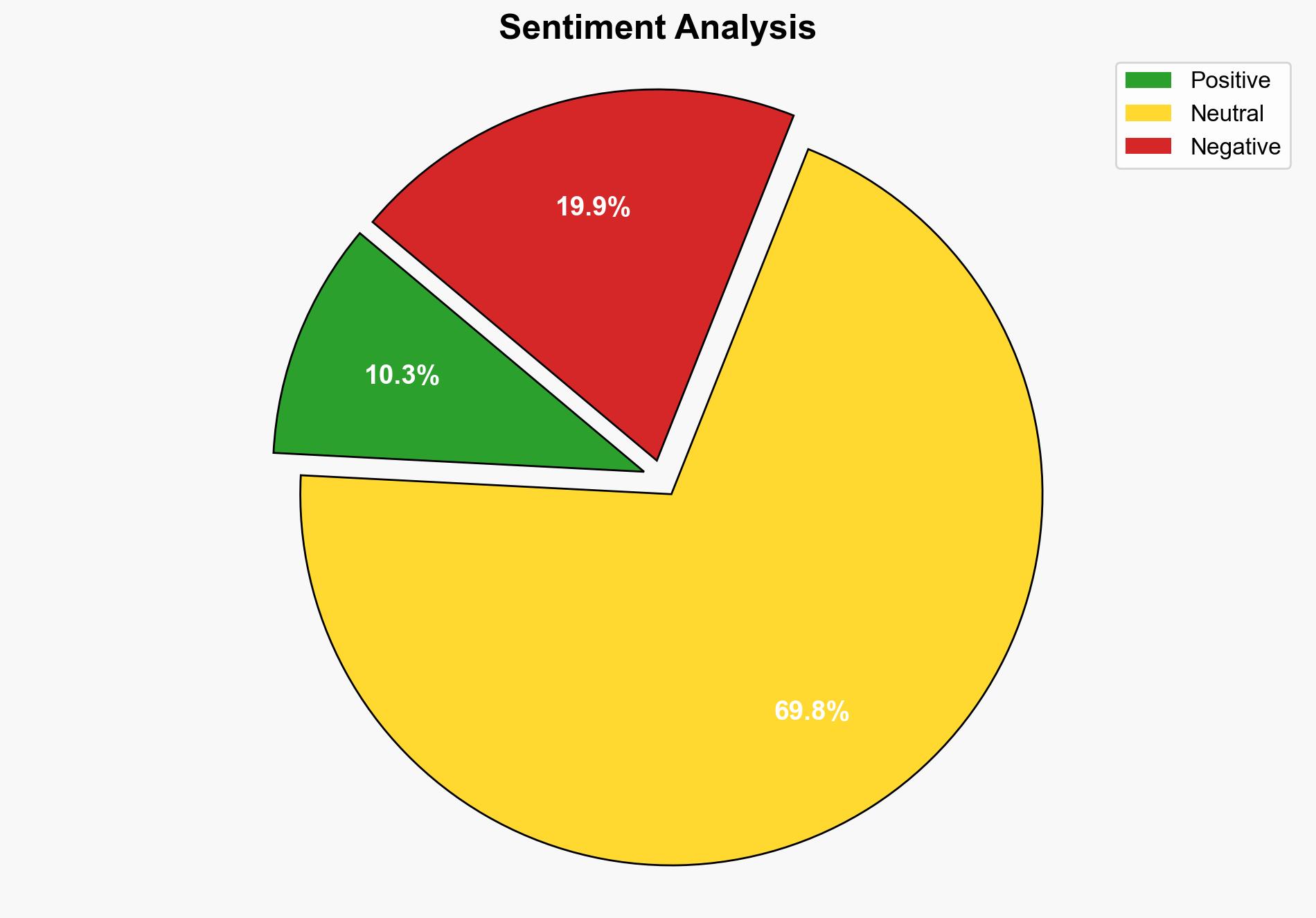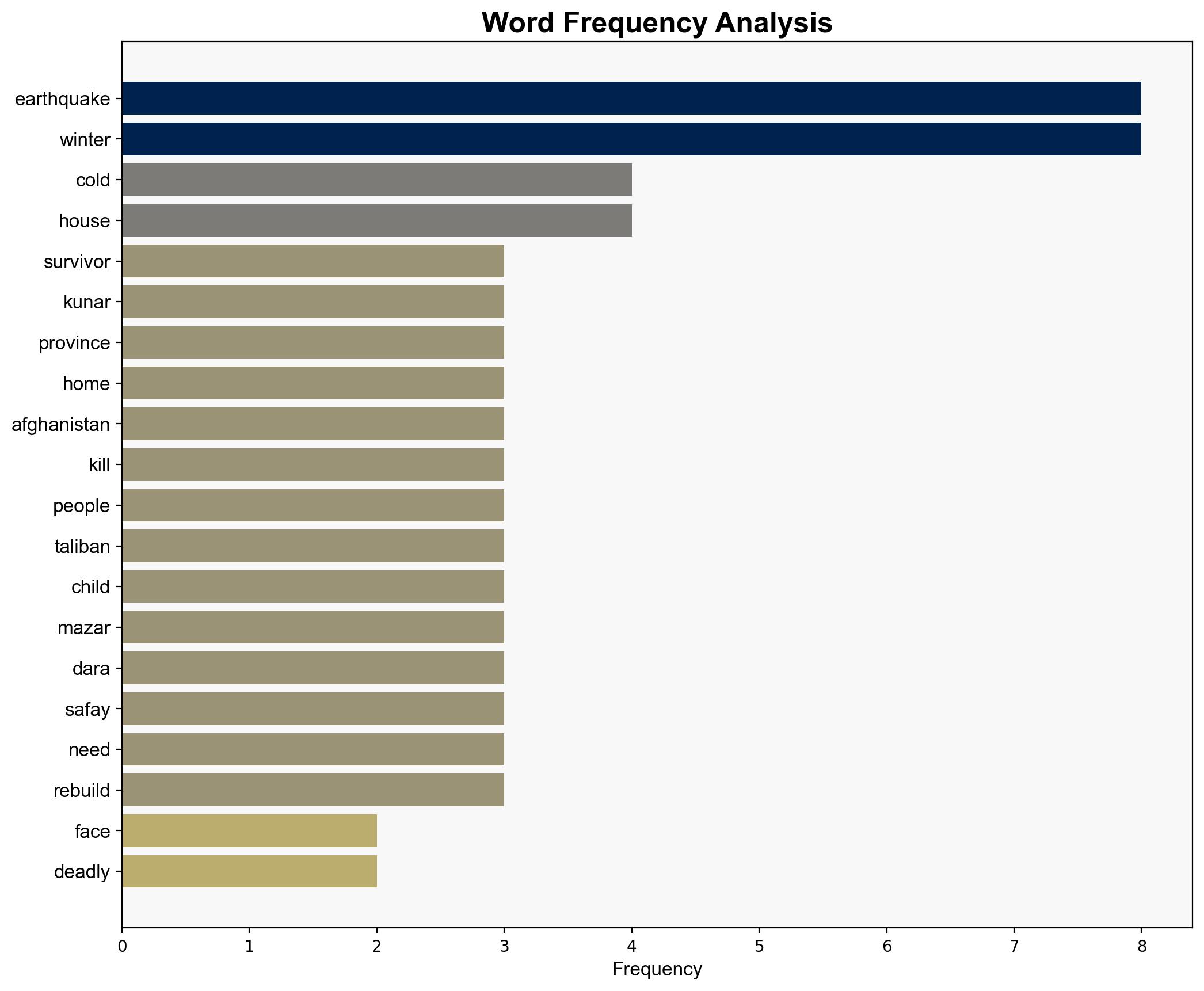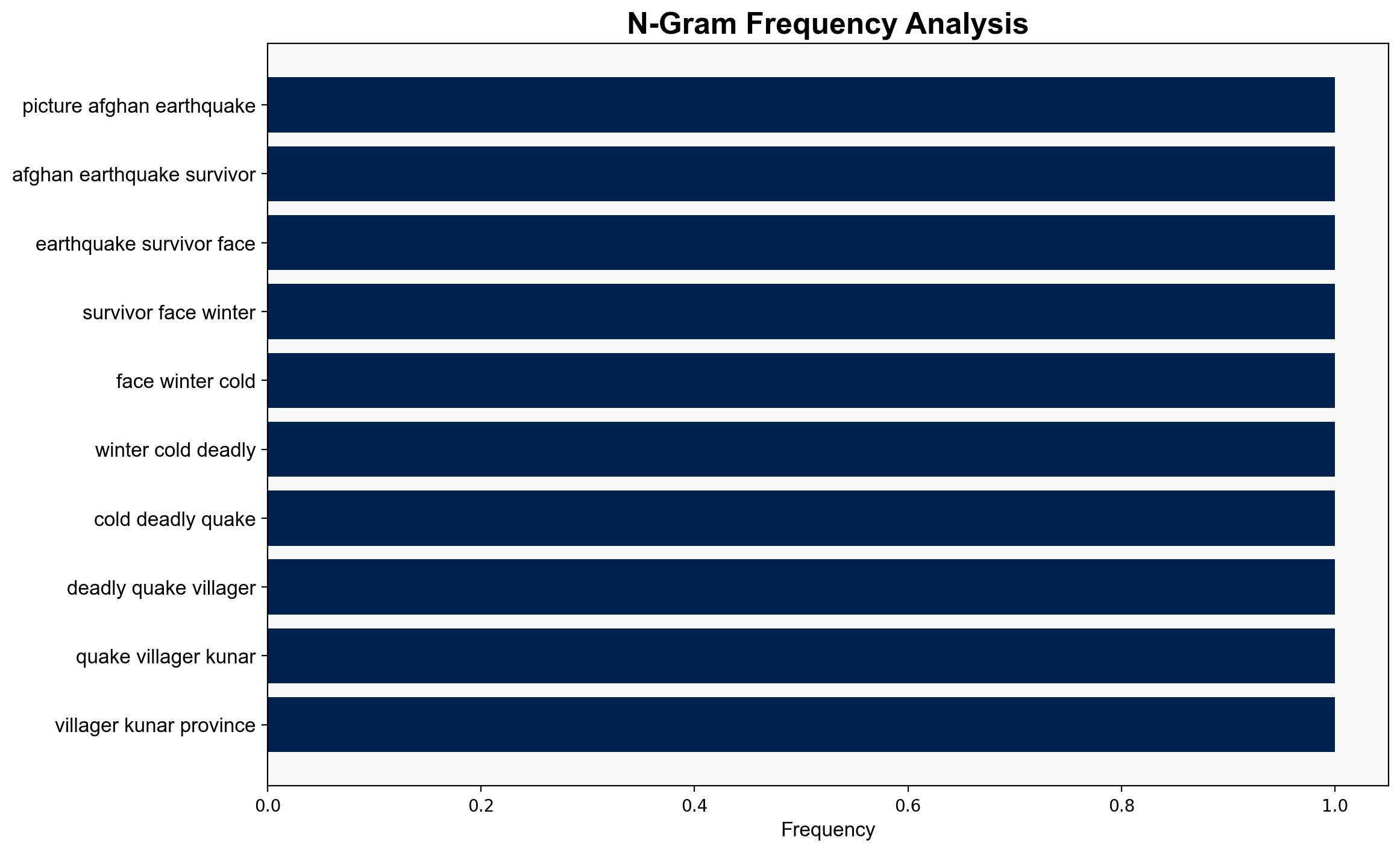Afghan earthquake survivors face winter cold after deadly quakes – Al Jazeera English
Published on: 2025-11-06
Intelligence Report: Afghan earthquake survivors face winter cold after deadly quakes – Al Jazeera English
1. BLUF (Bottom Line Up Front)
The most supported hypothesis is that the Afghan earthquake survivors will face severe humanitarian challenges due to inadequate shelter and international aid withdrawal, leading to a potential humanitarian crisis. Confidence Level: High. Recommended action includes urgent international humanitarian assistance and collaboration with local authorities to provide adequate winter shelter and resources.
2. Competing Hypotheses
1. **Hypothesis A**: The Afghan earthquake survivors will face a severe humanitarian crisis due to inadequate shelter and resources, exacerbated by the withdrawal of international aid.
2. **Hypothesis B**: Local and international efforts will successfully mitigate the worst impacts of the winter on earthquake survivors, preventing a humanitarian crisis.
Using Analysis of Competing Hypotheses (ACH), Hypothesis A is better supported due to the current lack of adequate shelter, clothing, and international aid, as well as the harsh winter conditions. Hypothesis B is less supported due to limited evidence of effective local and international intervention.
3. Key Assumptions and Red Flags
– **Assumptions**: It is assumed that the current level of international aid will not increase significantly in the near term. Local infrastructure is presumed inadequate to handle the crisis independently.
– **Red Flags**: The potential for underreporting of aid efforts or miscommunication between local and international entities. The assumption that all survivors are unable to relocate may not hold true for all.
4. Implications and Strategic Risks
The primary risk is a humanitarian crisis leading to increased mortality among survivors. This could destabilize the region further, potentially leading to increased migration and strain on neighboring areas. The situation may also be exploited by non-state actors to gain influence by providing aid, thus impacting regional security dynamics.
5. Recommendations and Outlook
- Immediate international humanitarian intervention is necessary to provide adequate shelter and resources for winter.
- Engage with local authorities to ensure efficient distribution of aid and resources.
- Scenario Projections:
- Best Case: International aid increases, and local efforts are coordinated effectively, mitigating the crisis.
- Worst Case: Aid remains insufficient, leading to a humanitarian disaster and regional instability.
- Most Likely: Partial aid improvement, but significant challenges remain due to logistical and political barriers.
6. Key Individuals and Entities
– Gulabuddin: Affected resident who sustained injuries and lost belongings.
– Najibullah Hanafi: Taliban official highlighting the need for clothing and aid.
– Wali Safay: Resident expressing concerns about rebuilding efforts.
7. Thematic Tags
national security threats, humanitarian crisis, regional focus, disaster response




